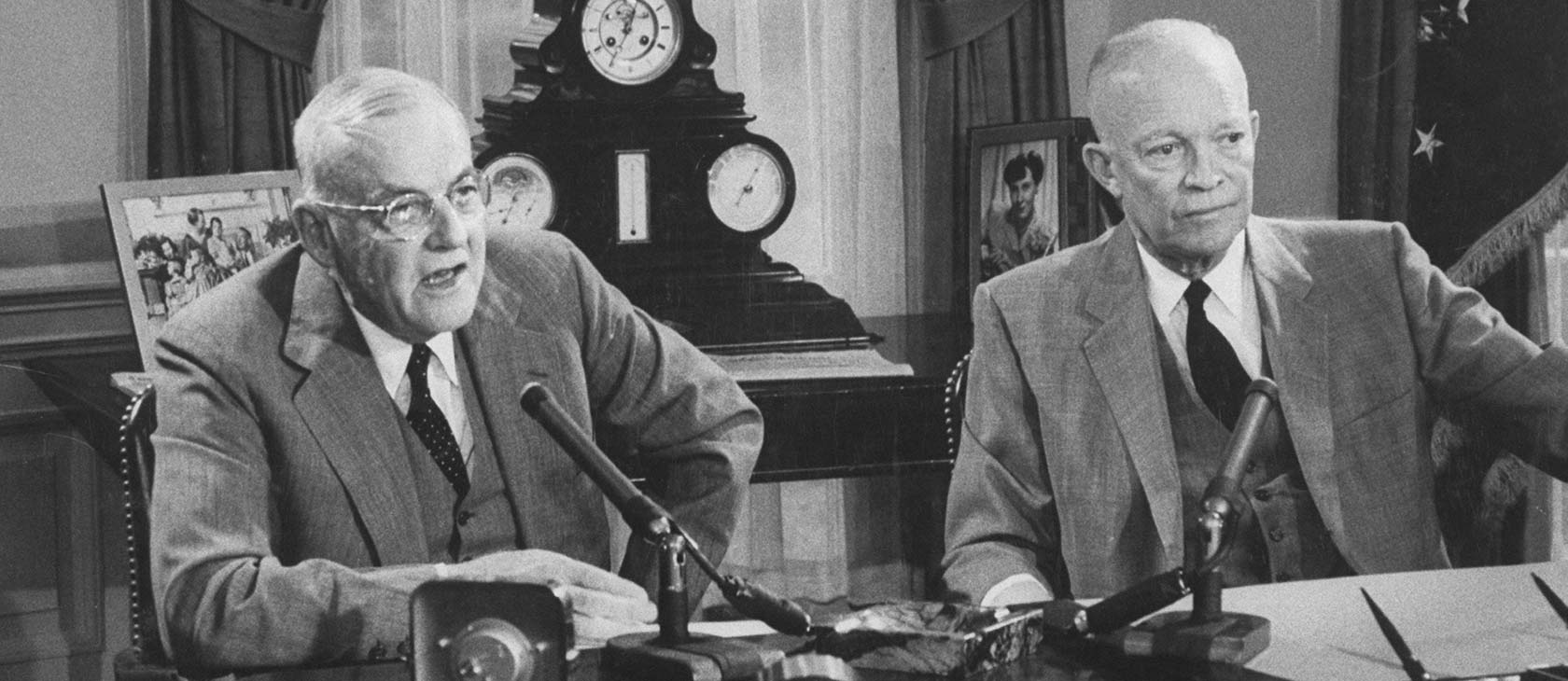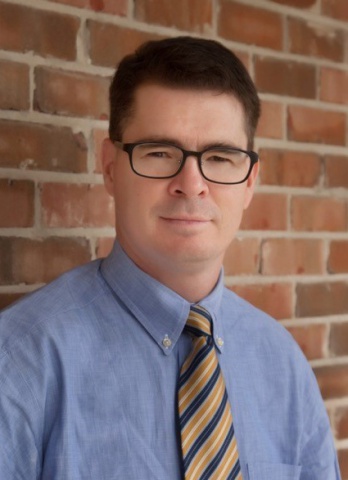I did not like John Foster Dulles when I first met him.
Of course, I have never actually met him; he died 10 years before I was born. But I have been studying him and writing about him for seven years now. And I first encountered him almost 30 years ago, while I was a student majoring in history at Furman University.
Back then, I was taking a course on “U.S. history since 1945” with one of my academic heroes, Dr. Marian Strobel, who still teaches at Furman. Dulles came up a lot in that course. John Foster Dulles was instrumental in the formation of the United Nations, served on the postwar Council of Foreign Ministers, led the negotiations which produced the Treaty of San Francisco in 1951 that formally ended hostilities with Japan, and held the position of United States Secretary of State from 1953 to 1959 in the Eisenhower administration. When Dulles died in 1959, he was nearly universally regarded as a titan of sagacity, a paragon of the statesman, and the embodiment of American prestige. His state funeral was the largest in the history of the nation’s capital to that date, surpassed just four-and-a-half years later by that of President John F. Kennedy.
But Dulles’ star faded considerably in the years following his death, largely because by the late 1960s and throughout the 1970s, Americans began to regard the anti-Communist interventions which took place during the 1950s in the Middle East, Asia, Latin America, and Africa with regret and disgust. In 1973, Townsend Hoopes’ The Devil and John Foster Dulles was published, which was the first critical biography and assessment of Dulles’ work as a lawyer and a diplomat. One can tell by the title that Hoopes’ work did not offer a positive take. More negative treatments of Dulles came out over the years, and only one of them can be said to offer a critical, yet balanced, treatment: Ronald Pruessen’s John Foster Dulles: The Road to Power (1982).
The most recent treatment of Dulles appeared in 2013, and it can fairly be called a hit job. Stephen Kinzer’s The Brothers: John Foster Dulles, Allen Dulles, and Their Secret World War was a full-throated condemnation of Dulles as a simplistic, puritanical jingoist. In a 2014 interview on The Brothers, Kinzer said that Dulles was “arrogant, self-righteous, and prudish …. even his friends didn’t like him.” He went so far as to lay the entire blame for America’s involvement and subsequent failure in Vietnam at Dulles’ feet. “We could have avoided the entire American involvement in Vietnam” if Dulles had not insisted on it as early as 1954, Kinzer asserted.
Dulles deserves a more fair and accurate treatment. For one thing, every history of a particular event, person, idea, or movement is taken from the perspective of the historian’s own context and background. And every biography contains a bit of the author’s autobiography. I have studied Dulles carefully over the past several years, and I can admit that at first, I was convinced by Dulles’ detractors of their contention that his actions as an American diplomat were, on the whole, bad for America’s standing in the world. But as I considered the human being behind the caricatures, I began to get a different perspective. More specifically, as I studied Dulles as a religious man, I came to understand his positions and decisions during the 1940s and 1950s more comprehensively.
Most of Dulles’ biographers failed to treat Dulles’ religious life all that seriously. The one exception is Mark Toulouse, who wrote the only book-length religious biography of Dulles in 1986. Toulouse’s The Transformation of John Foster Dulles is an excellent study, but only treats 15 years of Dulles’ 71-year life span. I became convinced that any responsible assessment of Dulles’ public life had to start by looking at Dulles’ religious faith, beginning with his grandparents and parents, proceeding to his childhood and early adulthood. A perceptive biographer had to note how his religious views evolved around the circumstances of his life and career, at home and in public, over the course of his life.
Among other things, I found that yes, contra Kinzer, Dulles’ friends did actually like him.
Neglecting the influence of religion on Dulles’ life necessarily results in a skewed and inaccurate account of his career. Consider the example of his work on the Treaty of San Francisco, which was ratified by the Senate in 1952.
By 1950, Dulles had become convinced that the Soviet Union was as dire a threat to world peace and human freedom as Nazi Germany had been in the 1930s and 1940s. He wrote that the Soviets “believe it right to use fraud, terrorism, and violence, and any other means that will promote their ends.” The Soviet empire was atheistic and operated outside of the moral law, because the Soviets denied its existence. On April 6, 1950, Dulles was appointed foreign policy advisor to Secretary of State Dean Acheson, and he began to work as chief negotiator for a treaty of peace with Japan. He made four trips to the Far East in 1950 and 1951, and he enjoyed the full support of Secretary Acheson and President Harry S. Truman.
For Dulles, the animating vision for a peace treaty with Japan was the Christian spirit of reconciliation. In 1919, Dulles had served on the Reparations Commission at the Versailles Conference, which produced the disastrous Versailles Treaty that ended World War I. That treaty was essentially retributive against Germany, and the Second World War was the direct result of the harsh and vengeful treatment of Germany by the Allies.
Dulles actually helped draft the infamous War Guilt Clause, which forced Germany to accept responsibility for the war. But Dulles learned important lessons from that experience, namely, that peace is ensured by magnanimity and forgiveness, not revenge. America had a “special responsibility … to bring international relations into conformity with moral law,” Dulles wrote after the San Francisco Treaty was ratified on March 20, 1952.
The peace treaty with Japan was one of Dulles’ most important achievements. The treaty was the cornerstone of peace in the Pacific during the Cold War, and it also served as a bulwark against the spread of Communism into Japan. This spared the nation the ravages of collectivism and socialism, allowing Japan to become not just a U.S. ally, but one of the most prosperous nations in the region. It likely preserved religious liberty, which Marxism extinguishes everywhere it seizes power. Instead of disparaging Dulles as a self-righteous prig, we should offer intelligent assessments based on Dulles as a man, not a character from a Herblock cartoon. Dulles’ religion defined his humanity, and compelled him to serve the rest of humanity.




